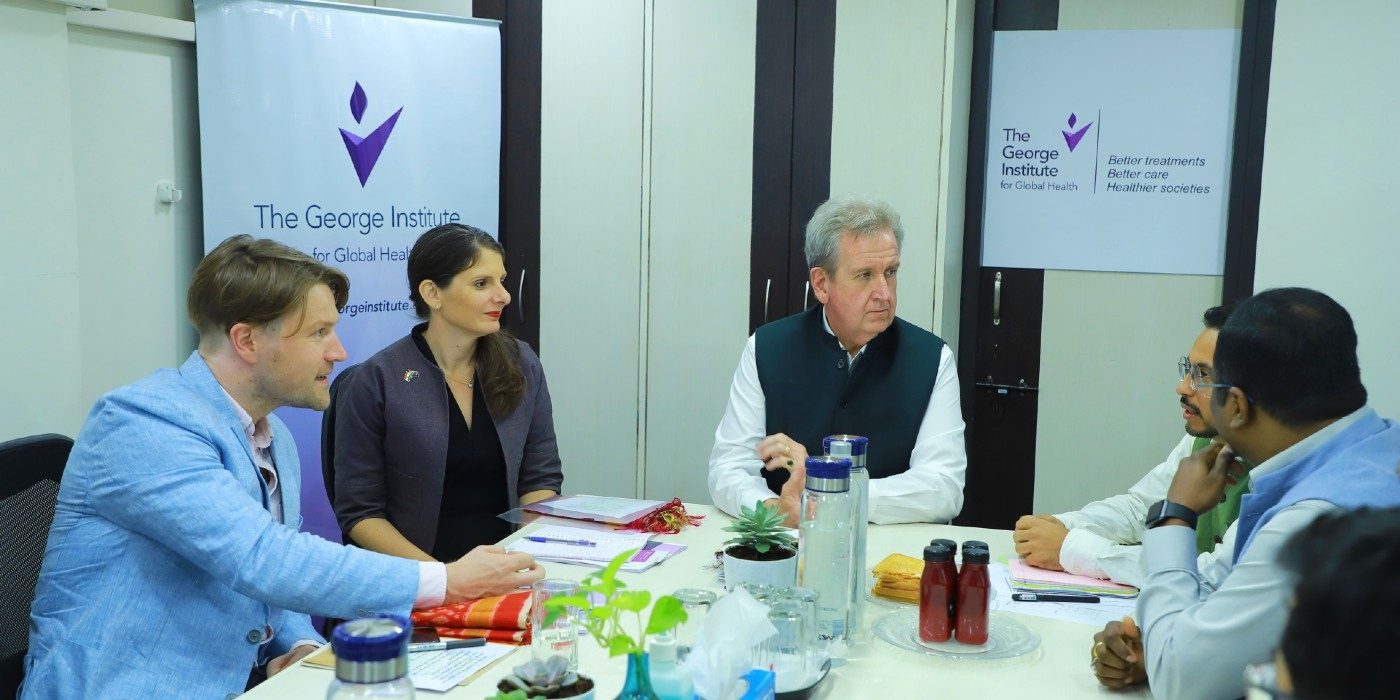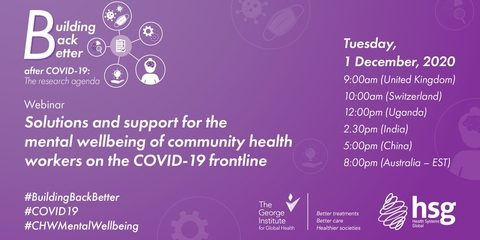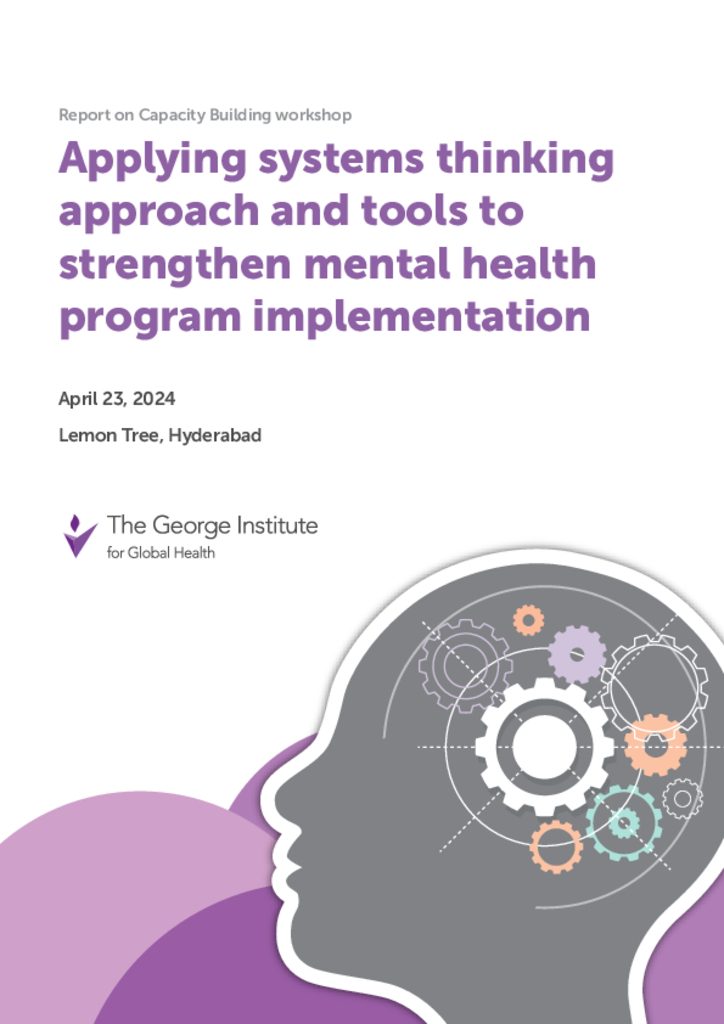
Australian High Commissioner announces DAP Grant to The George Institute for Global Health, India to implement Mental Health initiatives in Telangana
Hyderabad, 11th May 2023: The Australian High Commissioner to India, The Hon. Barry O’Farrell, and the Consul General – Chennai, Sarah Kirlew announced the Direct Aid Program (DAP) Grant to The George Institute for Global Health India at the India’s office in Hyderabad on 10th May 2023. The seed grant provided by the Direct Aid Program is for INR 1 million.
The project, ‘Strengthening Mental Health Systems through Action at District Level’, aims to build capacities of select DMHP team in and around Hyderabad to use systems thinking approaches and tools to identify and address bottlenecks. The George Institute India will directly implement the Mental Health project in collaboration with key stakeholders.
Weak Mental Health (MH) Systems and processes are important contributors to service-gaps. Successful implementation of the DMHP is crucial for managing the large burden of Mental Morbidities in the country. Several evaluations and expert committee reports have found a need for improved governance, monitoring and evaluation, and research to strengthen MH services.
At the start of the event, Mr. Amit Khanna, Director of Finance and Operations at The George Institute India and Dr. Praveen Devarsetty, Program Director of Better Care at The George Institute India welcomed the Hon. High Commissioner and other dignitaries from Australian High Commission and briefed them about The George Institute’s work.
While announcing the DAP grant to The George Institute, India, The Australian High Commissioner to India, The Hon. Barry O’Farrell, said, “I am pleased that we are able to support this important work through the Direct Aid Program administered by the Australian Consulate General for South India. Australia-Telangana collaboration and mutual learning to improve mental health care services will deliver benefits for best practice understanding in both countries.”
Professor Vivekanand Jha, the executive director of The George Institute, India said, “The George Institute is working through a range of projects to generate actionable evidence to support the identification and management of mental health conditions and looks forward to working with the local governments and other stakeholders. We are pleased that this work has been further enabled by the Direct Aid Program of the Australian High Commission to India, which reiterates the high level of engagement between the two countries in this key area.”
Dr Ankita Mukherjee who will lead this from the Institute said, “This project will help identify some of the barriers in implementing the District Mental Health Programme and work with key stakeholders to facilitate the process using a health systems approach. I am very glad that Australian High Commission is supporting this very important area of work through its Direct Aid Programme”.
The key objectives and activities under this program include:
- Understand mental health service availability, service gaps and challenges in implementation of DMHP in one district of Telangana
- DMHP and state mental health program guidelines will be reviewed to list key program activities and gaps.
- Building capacity in core concepts of systems thinking and application of systems thinking tools for collective problem identification and problem-solving
- Workshops with select district-level teams in and around Hyderabad, for building capacity in core concepts of systems-thinking.
- Feedback and Evaluation
- A competency & feedback tool will be administered at the start and end of each workshop
- A competency & feedback tool will be administered at the start and end of each workshop
Proper implementation of the DMHP is critical for improving access to mental health care. The DMHP unit is led by a psychiatrist who has both clinical and administrative duties and is assisted by both technical and administrative staff. There are gaps in capacity building of these teams on program management and capacity in applying available tools and theories to improve program implementation. Building capacities of the team to use systems thinking and tools for collaborative problem-solving and use, can help in addressing this.
Please read the report on capacity building workshop on 'Applying systems thinking approach and tools to strengthen mental health program implementation'.















